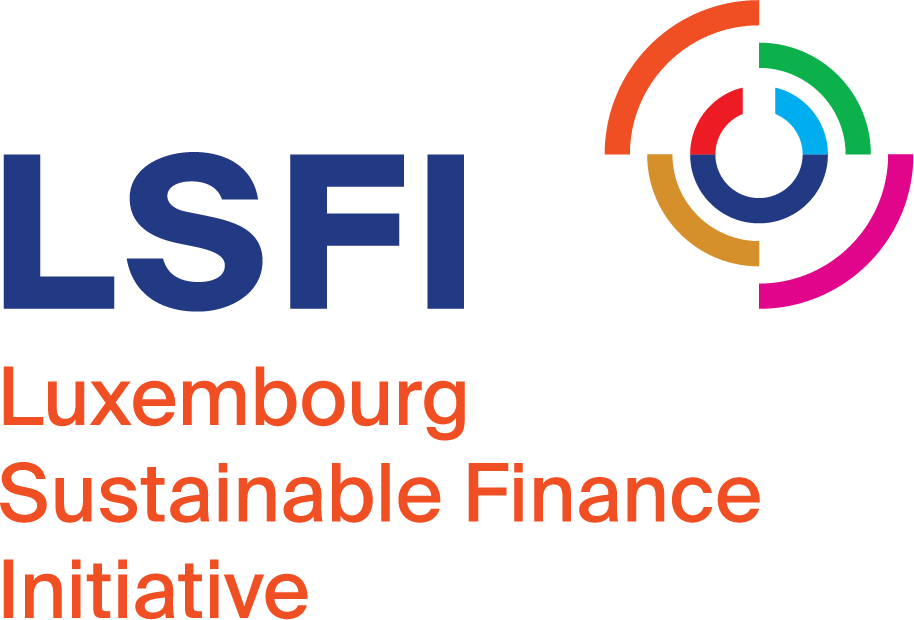Following his inspiring keynote at the LSFI Summit – Finance for a Sustainable Future held on last 17th and 18th of September, we discussed with Claude Marx, Director General of the Commission de Surveillance du Secteur Financier (CSSF), the key role of the CSSF in building credibility and trust in the sustainable finance space.
In addition, we have asked him what his main takeaways from the LSFI Summit were.

Claude Marx, Director General of the Commission de Surveillance du Secteur Financier (CSSF)
LSFI: The CSSF plays a central role in supporting the Luxembourg financial sector’s transition towards sustainable finance. In your view, what are the main responsibilities of the supervisory authority in this process?
Claude Marx (C.M.): The main role of the CSSF, as a supervision authority, is to establish and maintain trust in sustainable finance, both for market players and consumers.
The necessary prerequisite is to have clear, consistent, and enforceable rules around sustainability requirements and standards.
Unfortunately, the implementation of the EU 2020 green agenda has been strenuous, with a vast amount of regulation issued in record time and difficult to understand for both professionals and investors.
Since the advent of the first ESG regulatory package, the CSSF has advocated for reducing unnecessary complexity, making compliance more manageable for firms and institutions, and ensuring that sustainability disclosures enable decision-making.
A solid foundation with clear transparency and governance requirements is necessary to ensure misleading claims and greenwashing are properly addressed, thus ensuring that investors and market participants can rely on the information provided to make informed decisions.
While ESG topics seem to have become somewhat divisive, it is important to understand that the role of the CSSF, as the supervision authority, is to remain neutral and to impartially ensure that rules are applied, based on established mandates. Only by doing so can we contribute to a stable and credible environment that supports market integrity and the continued growth of sustainable finance.
LSFI: European sustainable finance regulations (SFDR, CSRD, Taxonomy) are evolving rapidly. How does the CSSF see its impact on market participants in Luxembourg? What do you consider to be the main challenges and opportunities arising from these developments?
C.M.: The evolving landscape of these European regulations presents both significant challenges and promising opportunities.
Challenges primarily stem from the complexity of these regulations. Compliance requires organisations to collect, manage, and disclose extensive sustainability-related data, which can be resource-intensive and burdensome, particularly for smaller enterprises. Moreover, ensuring the availability and quality of reliable, standardised, and comparable ESG data remains a critical issue.
Understandably, those complexities, in that area but also in other matters, have raised concerns around the EU’s competitiveness.
While the European Union has long been at the forefront of pushing for sustainability in finance, it also recognises the need to maintain its competitiveness on the global stage, thus leading to an unprecedented simplification and burden reduction effort.
These concerns are valid; however, they should not be construed as being in opposition to the implementation of the ESG framework.
Rather, both the need to better take into account sustainability features in finance on the one hand and competitiveness on the other should be viewed as key pillars of the future of the ESG framework, thus ensuring that such a framework remains proportionate and effective.
In that context, a big challenge will be striking the correct balance between alleviating regulatory overload while also retaining the benefits of the ESG framework and sustainability reporting to support transition efforts. Of course, the evolving context adds a layer of challenge because uncertainty persists, which can sometimes lead to different interpretations and market fragmentation, increasing the operational complexity for firms.
However, the evolution of the European sustainable finance regulations is a renewed opportunity to take into account market feedback and ensure that the framework is both proportionate and efficient.
It is encouraging that the EU is now working on adjusting timelines, simplifying reporting requirements, and examining the overall approach to ESG to ensure that the rules are conducive to their purpose. Simplified requirements should aim at fostering greater trust among investors and stakeholders, thus facilitating more informed decision-making.
LSFI: The shift toward more sustainable finance demands close collaboration among regulators, institutions, and market players. The LSFI Summit, held on September 17th and 18th, reflected this approach by bringing together professionals from a wide range of financial institutions, around knowledge-sharing sessions on emerging trends in sustainable finance. What are your main takeaways from the event?
C.M.: It is encouraging to see that the event was well attended. The strong attendance and the quality of the interventions highlight the event’s success in fostering meaningful discussions in a context of evolving European sustainable finance regulations
It goes to show that a growing number of stakeholders are coming to the understanding that integrating sustainability considerations and effectively managing sustainability risks are essential drivers of long-term financial strategies and resilience.
Indeed, ESG should not be viewed as a passing trend, but an evolving concept.
What has shifted isn’t the significance of ESG; rather, it’s the way organisations are approaching it. Today, companies should focus on clear, measurable strategies that are fully integrated into their business models, and the ability to explain and substantiate ESG claims.
Rather than waiting for ESG concerns to fade, forward-thinking companies should actively prepare for this shift.





